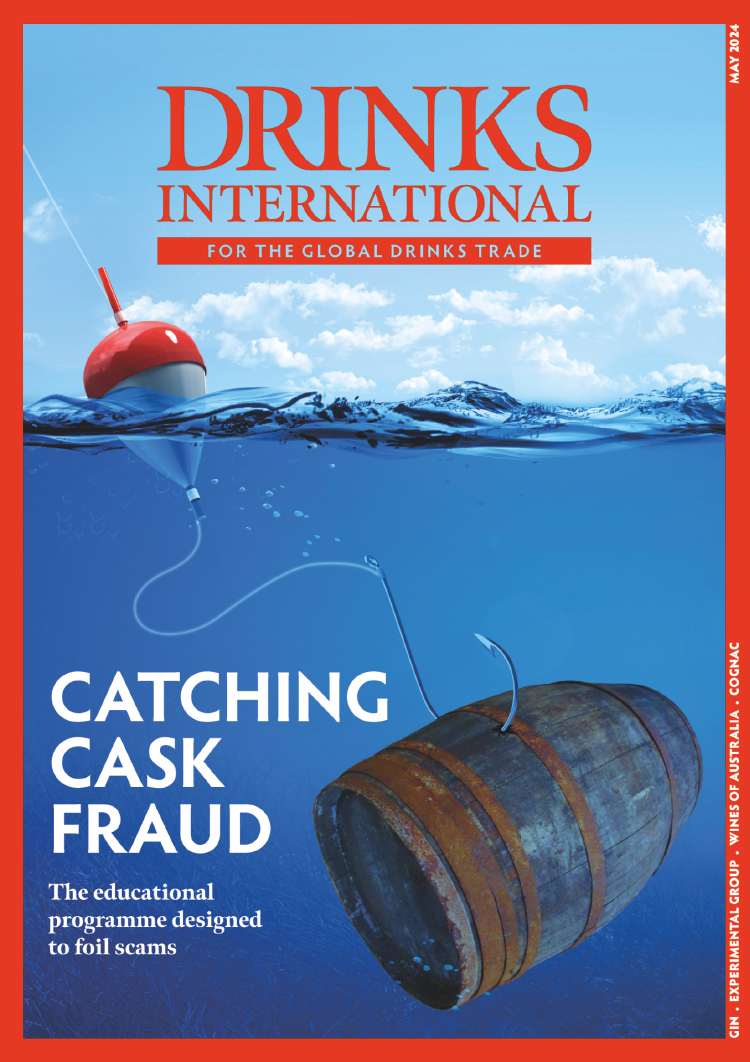When Minakshi Singh first got behind the stick in 2004, it was illegal for women to sell alcohol or even work behind a bar in India. But she didn’t let being Indian or female hinder her blossoming passion for the profession – today, she’s co-owner and chief executive of 50 Best Bars regular Sidecar as well as Cocktails & Dreams Speakeasy, two of India’s most renowned establishments.
The first time we meet, she’s trailblazing as the first Indian on a World Class jury. The second time is a few weeks later at a guest shift at Raffles’ Writers Bar in Singapore, where she’s proudly championing colleague Apoorva Kohli, freshly anointed as the benefactor of 50 Best Bars’ 2023 The Blend Scholarship. With almost 20 years in hospitality, Singh’s middle name should be ‘groundbreaking’: she’s overcome countless hurdles, including constitutions and (temporary) family estrangement, empowering herself and other women along the road that led her to become the first Indian owner to rank in 50 Best Bars.
‘Better than waitressing’
Singh says: “I studied hospitality and was set to take the traditional path of becoming a hotel manager. But in 2004, I started freelance bartending, and it paid well – much better than waitressing.
“I realised it was an amazing world that I wanted to be part of. When I reached out to people about pursuing it professionally, I found it wasn’t actually legal for women to sell alcohol or be bartenders in India because of an extremely archaic British law. But I was very fortunate in meeting key people at that time who didn’t let me leave the industry, and discovering at a young age the passion for what I wanted to do for the rest of my life.”
While the law was finally overturned in Delhi in the late noughties, Singh also had to deal with parents who didn’t support her dream. “They hated my bartending and were very upset because I was a college graduate who, in their eyes, should be in a white-collar job. The class system is very strong in India and my family didn't talk to me for a while. “But nine months later, they saw my passion. I was 28 when I started my first bar in 2012, traditionally the ‘right’ age in India to be married.
But my father, in a 180° transformation, said: ‘Don't wait until you’re too old to live your dream.’ I quit a well-paid job to start my bar – and he supported me.” And with that, she waved goodbye to the spirits corpo world.
‘The “isms” are heavy’
Besides prohibitive law and family disapproval, face-to-face sexism is another challenge she’s had to overcome in India’s industry, and Singh serves it to you straight, like the brandy-based cocktail after which her flagship bar is named.
“The ‘isms’ are heavy,” she says. “The assumption of patriarchy is heavy, that I'm the owner because my husband, brother or father funded me and is my business partner. Initially, most of the time I got pretty pissed off with people assuming that, then I realised it’s a generational thing; I’ve learned not to be angry about sexism, to accept it and have a dialogue.
“My business partner is just my business partner, right? Each brings their expertise and we are 50-50 in everything. A few years ago, however, I added CEO to my designation because I thought it would help: I sign the cheques and do the salaries as well as a lot of other shit. CEO, CFO, managing director. In F&B you’re everybody, you're also housekeeping, chief toilet unclogger… but let’s not go there,” she laughs.
Making dreams come true
It was while tending bar that Singh met mixologist and future business partner Yangdup Lama; in 2012, they set up a tiny watering hole in a city near New Delhi. “We could only afford a place far away,” she says. “Yangdup served drinks, while I was waiting, serving, opening and closing Cocktails & Dreams Speakeasy, because that's all we could afford. But that experience brought us back into the industry in a way that I don’t think anything else could have, because when you have limited resources, you have to be creative.”
Two years in and word had spread that this bar was different, that it was tended by its young and totally involved owners. “Despite being located in Gurugram in the middle of nowhere, in what remains a very cheap area, Speakeasy got a lot of love. Even today, though, I feel we are in the middle of nowhere; it’s not in the hub of things like Delhi, Bombay or Bangalore.”
Then in 2018, an opportunity arose for the duo to open their next bar, but this time in the middle of Delhi’s action. “We splurged on Sidecar, putting in all the money that we earned and went for our dream. We started getting noticed for our work, the menu we created, the way drinks were served. It was groundbreaking in a country that was young and still making its way in the cocktail world. Few people were doing what we were doing at the time, and that put us in the limelight – the timing was perfect.” Indeed it was. Known as India’s bar for bartenders, Sidecar ranked 26 in 50 Best Bars in 2022, and is also a regular in the Asia edition.
India rising
A pioneer in so many ways, in October Singh was the first Indian bartender to sit on a World Class jury. The cherry on the icing was colleague Aashie Bhatnagar not only reaching the final (the only woman in the last 12) but also Aashie’s picking up the People’s Choice Award.
“My country is often called third world and it’s tough to explain that we are bright, beautiful and culturally amazing,“ says Singh. “To be the first Indian on a World Class jury is a testament to the fact that the world is noticing what I’m doing and that it’s meaningful – that’s a huge honour. Breaking ceilings is the way to go.”




